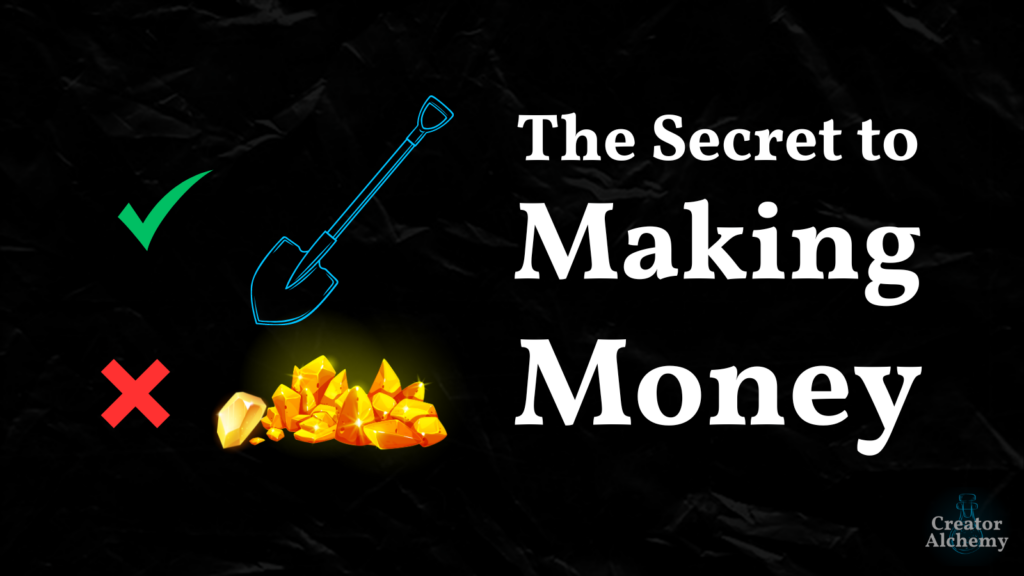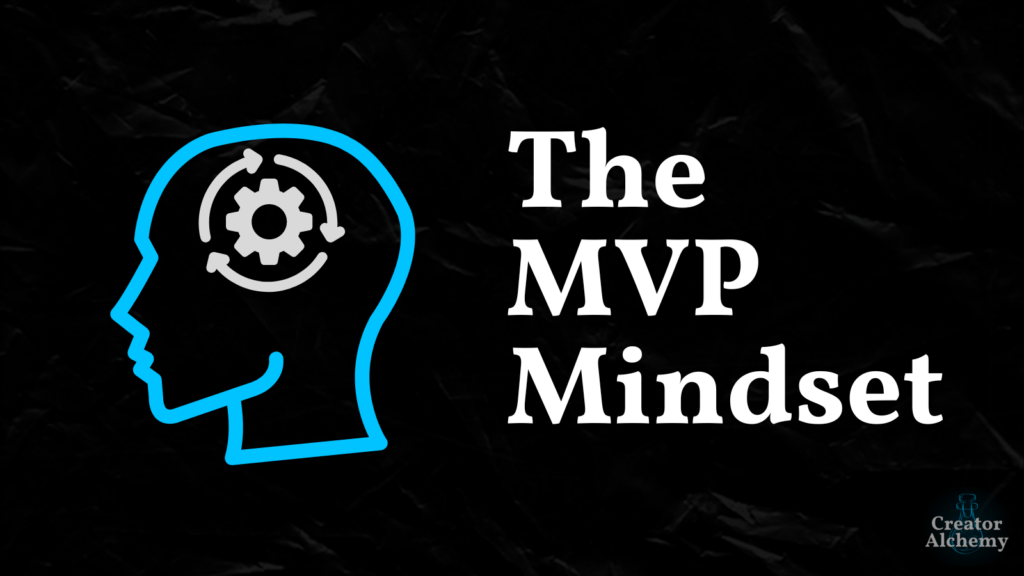If you clicked on this article, you’re probably struggling with Imposter Syndrome. You’re not alone—it’s estimated that up to 82% of people struggle with it.
The real issue, though, is that Imposter Syndrome keeps us from reaching our potential.
When we question our ability to add value to the world and let this doubt—this fear—paralyze us, we don’t put ourselves or our work out into the world.
Too many people die regretting not having done more with their lives—and Imposter Syndrome is one of the culprits.
So read on for six lessons I’ve learned on how to overcome Imposter Syndrome. So you can conquer your fears and do meaningful work.
•••
1. No One Knows What They’re Doing
When I was in grad school, we partnered with the schools of medicine, pharmacy, and other human service-related fields to do a homeless outreach event in December.
People experiencing homelessness could come and get food, clothes, medical check-ups and medications—the whole nine.
Then there was me.
I was expected to offer therapy services.
It’s freezing outside. These people are fighting to stay alive every day. What can I possibly help them with? They don’t need deep breathing or relaxation skills!
I felt lost and useless.
So I walked up to two of my supervisors, who had a combined 50+ years of therapy experience, and asked:
“When does this feeling like I don’t know what the hell I’m doing go away?”
Their response:
“We’ll let you know.”
Even they—experts at the top of their field—still questioned their abilities.
Since then, I’ve met tons of people creating incredible companies and inspirational content. And every single one of them says the same thing—they’re winging it.
We’re all making things up as we go along.
•••
2. But That Doesn’t Have to Stop You
It’s okay to question yourself. But don’t let it keep you from doing meaningful work.
It’s terrifying to put yourself, or your work, out into the world. Most of my coaching clients are creators, entrepreneurs, and founders. Many of them question how good what they’re putting out into the world really is.
In essence, they’re concerned with what critics might say.
When my clients struggle with this, I point them toward the single most-influential piece of writing I’ve come across and draw inspiration from anytime I start to question myself.
Popularly known as the “Man in the Arena” speech by Theodore Roosevelt, it reads:
“It is not the critic who counts; not the man who points out how the strong man stumbles, or where the doer of deeds could have done them better. The credit belongs to the man who is actually in the arena, whose face is marred by dust and sweat and blood; who strives valiantly; who errs, who comes short again and again, because there is no effort without error and shortcoming; but who does actually strive to do the deeds; who knows great enthusiasms, the great devotions; who spends himself in a worthy cause; who at the best knows in the end the triumph of high achievement, and who at the worst, if he fails, at least fails while daring greatly, so that his place shall never be with those cold and timid souls who neither know victory nor defeat.”
Anytime fear or Imposter Syndrome start to creep in, I remind myself it’s better to live in the arena than sit on the sidelines and be a critic, or allow critics to keep me from doing meaningful work.
I revisited this speech many times last year when I got fired and dove both-feet-first into starting my own business—without any business training.
•••
3. Reframe Your Expectations
A big piece of Imposter Syndrome is rooted in unrealistic expectations.
We expect more of ourselves than we’re currently able to achieve.
Ali Abdaal is a physician with over 2 million Youtube subscribers. When he started writing a book on productivity, Imposter Syndrome kicked in hard.
So he talked to his writing coach, who helped him reframe his expectations:
“You don’t have to be a guru. You can be a guide.”
What’s the difference?
A guru comes down from the top of the mountain and claims to be an expert—they have all the answers and are infallible.
A guide is someone who’s on the same journey as you and shares what they’ve discovered so far.
When you expect yourself to be the be-all-end-all authority on something, of course fear will paralyze you from moving forward.
But if you see yourself as just a guide—someone who’s maybe 2-3 steps ahead of the person you’re talking to?
That’s way easier to approach.
•••
4. A Buffer Against Fossilization
Have you ever talked to a dinosaur?
I mean an “industry expert” or college professor who hasn’t updated their ideas in 30 years.
Their thinking has fossilized, and because they never question themselves or update their ideas, they’ve become arrogantly ignorant.
They definitely don’t have Imposter Syndrome. But that’s part of their problem.
Seth Godin says a dash of Imposter Syndrome–questioning ourselves and our abilities—is a good thing.
“It means you care enough to be better than you are.”
In moderation, Imposter Syndrome keeps us honest. It reminds us to question our competence and drives us to evolve.
The best way to keep from fossilizing?
Instead of expecting yourself to have all the answers, focus on being a lifelong learner. Go deeper into your own areas of interest, or branch out to new ones.
If you’re looking for a few book recommendations, here are my top three on how to live a better life.
•••
5. You’re Supposed to Be Uncomfortable
In this “day in the life” video Ali Abdaal walks through his day leading up to an interview on Steven Bartlett’s show, The Diary of a CEO.
Ali is a physician with over 2 million YouTube subscribers and has generated millions in revenue.
Steven is an investor and entrepreneur reportedly worth around $100 million.
Both guys have a track record for success and are big names in their respective circles. So you’d think they would be immune to Imposter Syndrome.
They’re not.
After the interview, Ali asks Steven about his perspective on Imposter Syndrome.
“You’re supposed to be uncomfortable…You should live your entire life one step outside of your comfort zone,” said Steven.
Remember those dinosaurs? They spend their entire lives inside their comfort zone. They never grow. They never evolve.
Are you uncomfortable?
Good.
It means you’re pushing yourself to grow.
•••
6. It’s Okay to Suck. It’s Not Okay to Suffer for It.
Most of us experience Imposter Syndrome when we make what psychologists call, upward social comparisons.
Basically, we compare our current selves to someone we believe is somehow “higher” or “better” than us.
Let’s say you’re writing a book. Your first draft will be complete garbage compared to the published works of your favorite author.
But here’s the thing: you’re supposed to suck at first.
In On Writing, Stephen King talks about how he hung all his rejection letters on a nail in his room until they were too heavy for the nail to hold up.
His solution?
“I replaced the nail with a spike and went on writing.”
If you keep showing up, embrace lifelong learning, and do the work, you’ll eventually suck less.
But sometimes, no matter how little you suck at something, you can’t quite shake feeling like an Imposter.
If that’s you, you’re in luck.
Nick Wignall, a fellow psychologist, has a great article on practical strategies to overcome Imposter Syndrome.
One of my favorite quotes from his article is:
“It’s not feeling like an imposter that’s the problem. It’s feeling bad for feeling like an imposter that keeps you miserable.”
We all want to become the best versions of ourselves and put out our best work.
But when we expect too much of ourselves, we hyper-focus on our flaws and our insecurities run rampant–which prevents us from becoming our best selves or putting out great work.
So when your inner critic gets a little too loud, remember:
A little self-compassion goes a long way.
•••
Wrapping Up
At the end of the day, we’re all figuring it out.
But you have too much value to offer the world to let fear of ridicule or unrealistic expectations of perfection get in your way.
Growth happens one step outside your comfort zone, so embrace that discomfort—it’s telling you you’re on the right track.



